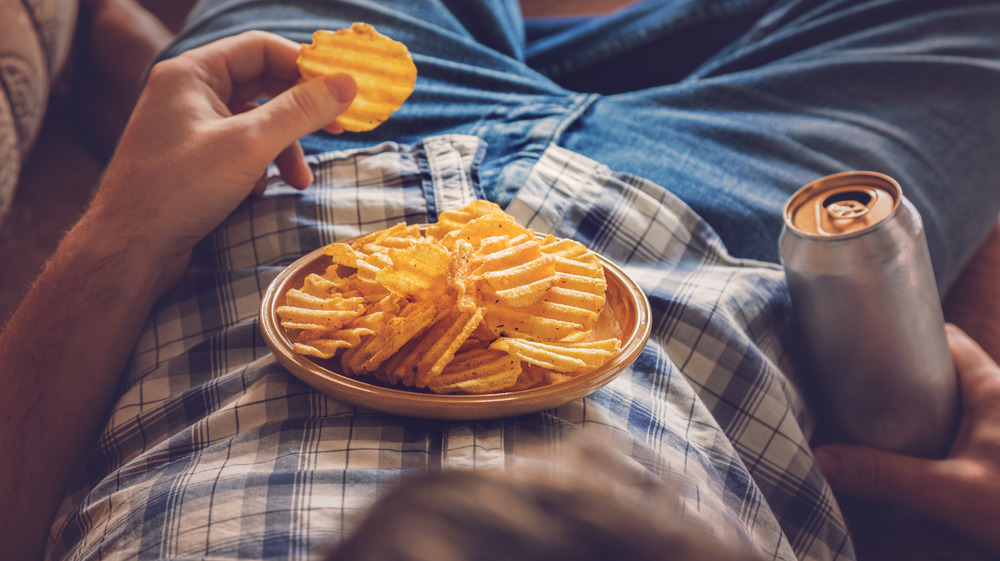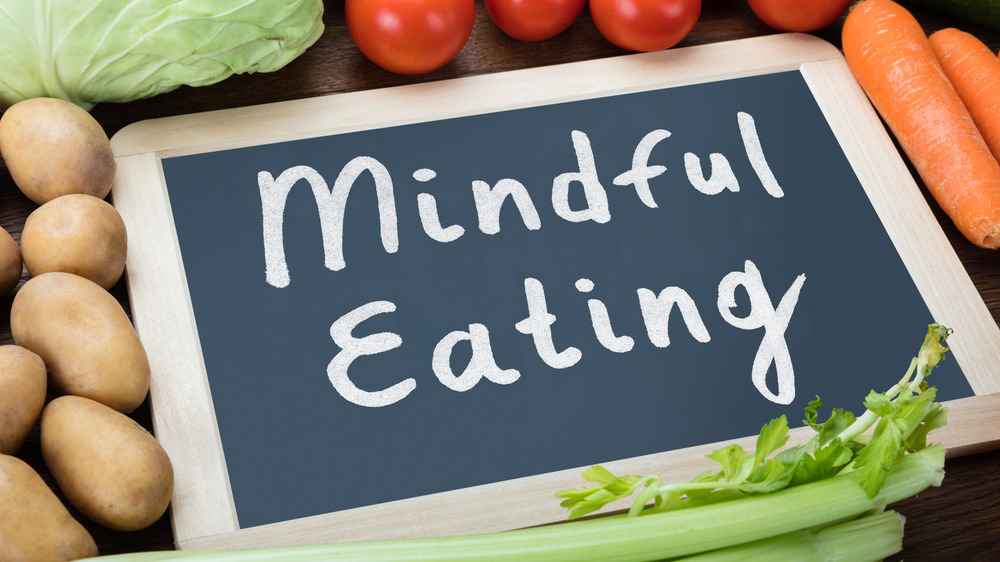Why You Always Want To Eat When You're Bored
Remember Pavlov's dogs? In the 1890's, Russian physiologist Ivan Pavlov discovered that, with conditioning, he could get dogs to salivate in response to the mere clicking of a metronome (via Simply Psychology). Psychologists have since extrapolated his findings, suggesting that humans can also be conditioned to respond in various ways to different cues. Could that be one reason that so many of us, when we're bored, set off in search of an unhealthy snack?
More recent research shows that the reasons behind 'boredom eating' are more complex than just badly-formed habits. Scientists today are more likely to point fingers at the chemical neurotransmitter dopamine, which is closely related to feelings of motivation, pleasure, and drive. When we're bored, dopamine levels are low — a less-than-optimal state for most of us. Eating is an easy way to increase dopamine levels, leaving us more 'excited' — and less bored. Guess which foods provide the biggest dopamine increase? You guessed it: the high-fat and sugar ones (via BBC Good Food).
Practice emotional awareness when eating
Snack producers are well aware of this and intentionally design their goodies to give us a dopamine boost and keep us coming back for more. Heather Kaplan, a Washington, DC-based dietitian and host of the RD Real Talk podcast, told Vice, "There are certainly theories that some foods are literally designed to reel us in, with the perfect flavor and texture combinations that our brains just can't resist."
Not only that, but apparently many people hate being bored so much that they would rather self-administer electric shocks, than do nothing when forced to sit alone for just 15 minutes (via BBC). Other studies examining boredom and food choices came to similar conclusions. Dr. Sandi Mann, lead author for one of the studies, said in a press release, "These results are in line with previous research [and] strengthen the theory that boredom is related to low levels of the stimulating brain chemical dopamine and that people try to boost this by eating fat and sugar if they cannot alleviate their boredom." (Via Men's Journal.)
Do you find yourself reaching for the Cheetos when bored? Ms. Kaplan suggests practicing emotional awareness before eating by trying to think of not just what you want to eat, but why.


